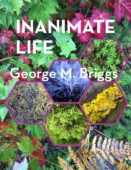Why read this book?
Why study anything? Because the enterprise of mentally applying yourself to a particular topic is itself fulfilling. Like many journeys, study can be boring and tiresome and often you wonder if you are getting anywhere at all. But eventually you will reach a place where you not only can see how far you have gone, but a place where you can see things that you couldn’t see before, or maybe you reach a place where things that you’ve seen before now look different and perhaps more understandable.
Fundamentally, this is a biology book. Why study biology? Living things are fascinating for a wealth of reasons—their diversity, their complexity combined with a fundamental simplicity, their functioning that begs for explanation, the multiple ways that living things exhibit organization, the multiple interrelationships between different living things. Also, there is clearly a fascination of biology that stems from the fact that people are indeed biological in nature.
Why study ‘inanimate’ (non-animal) life? This book studies a group of living things that are distinctive because they aren’t human, or mammalian or even animal in nature (hence the title). In particular, why why study plants, the primary subject of the book? There are at least three basic factors that make a study of plants particularly rewarding. First, plants are familiar organisms, things that are readily and commonly encountered, so much so that their fundamental biological nature is often ignored and they are simply considered inanimate components of the environment. Secondly, plants are extremely useful to human activities, not just as food but also by providing useful material and chemicals. Because of this, the study of plants has a connection to a host of human endeavors. Thirdly, plants are the most conspicuous members of what is considered ‘the natural world’ or ‘the outside’. Consequently, some understanding of plants can enhance the enjoyment of nature. An academic factor that makes plant study rewarding, and the reason for studying many inanimate (non-animal) organisms other than plants (e.g. fungi, bacteria) is that it enhances the understanding of other areas of biology by providing contrasting structures, development patterns, and physiologies when compared to familiar organisms.
There are many other reasons why the study of plants is rewarding, I’m confident that you will come up with additional reasons based on your own experience with the subject!











